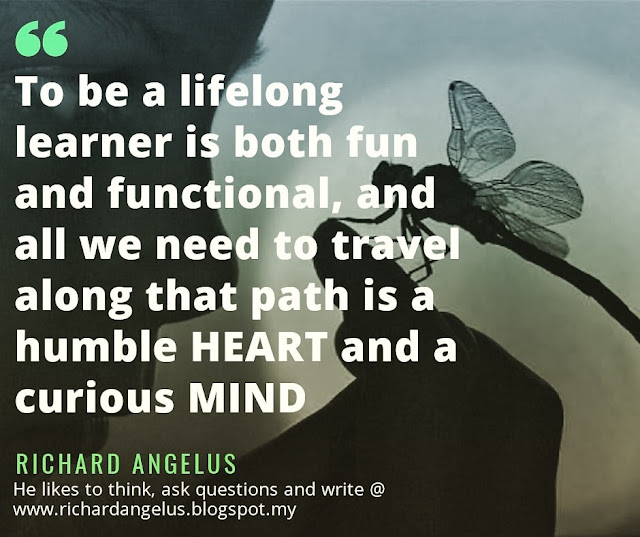The Lord said to Samuel, "Don't
judge by his appearance or height, for I have rejected him. The Lord doesn't
see things the way you see them. People judge by outward appearance, but the
Lord looks at the heart"
(1 Samuel 16:7,
NLT)
In his book, Wild At Heart, John Eldredge explained
the nature of man after Genesis 3:10, "You
don't need a course in psychology to understand men… We are hiding, every last
one of us. Well aware that we, too, are not what we are meant to be,
desperately afraid of exposure, terrified of being seen for what we are and are
not, we have run off into the bushes… Most of what you encounter when you meet
a man is a façade, an elaborate fig leaf, a brilliant disguise." In
short, John called it – the Poser.
King Saul was a poser.
When the pressure was on, in the heat of the battle, his true character
revealed itself. Confused and fearful, he tried to engineer circumstances by
partially obeying God's clear instructions when it served his own purposes. But
when confronted with his disobedience, Saul justified, rationalized, and
attempted to excuse his actions. For example, when Samuel found out that Saul sacrificed
the burnt offering by himself, Samuel was furious and Saul gave this excuse,
"You didn't arrive…" Just
like when Adam when fall into temptation said to God, "It was the woman you gave me who gave me the fruit…"
(Read the whole event in 1 Samuel 13:8-14). Saul's heart was dominated by
self-righteous and arrogance toward the things of God. Tragically, we men are a
lot like Saul in some areas of our lives. Oh, correction… Tragically, I'm a lot
like Saul in most area of my life!
What a contrast David was!
While Saul pursued independence from God, David longed for a deeper intimacy
with Him: "I take joy in doing your
will, my God, for your instructions are written on my heart" (Psalms
40:8). Although David's life, like any man's, was riddled with inconsistencies,
his heart remained consistently pure toward God. In the sight of the Lord,
David was transparent and open toward God. He was not a poser.
Like David, we all
struggle and fail at times. Yet if we fall because of sin, we know that our
standing with God remains just as it was: "If we claim we have no sin, we are only fooling ourselves and not
living in the truth. But if we confess our sins to him, he is faithful and just
to forgive us our sins and to cleanse us from all wickedness" (1 John
1:8-9). When David sinned, he confessed and repented. Thus, God forgave him and
he was "cleanse from all wickedness."
But when Saul sinned, he just regretted it and do nothing. He was “fooling” himself and “not living in the truth.” This is the
difference between David's and Saul's heart. Our conduct reflects our character, and our character reflects what is
ordering our hearts. If we want to change our conduct, then our character must
change. And if we want to improve our character, our hearts must be transformed.
"Create in me a clean heart, O God" (Psalms
51:10).
Again, like David, we can
ride out any storm if our hearts are secure in the Lord and in His love for us.
As Thomas a' Kempis, a Christian mystic, once said, "Man weighs your actions. God weighs your intentions." As God
weighs the intentions of your heart, which way is the scale tipping?
"Most
Christians are still living with an Old Testament view of their heart. Jeremiah
17:9 says, 'My heart is deceitfully wicked.' No, it's not. Not after the work
of Christ, because the promise of the new covenant is a new heart"
(John Eldredge)
THINK BIG. START SMALL. GO DEEP.



















